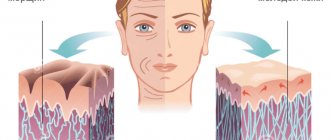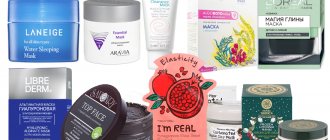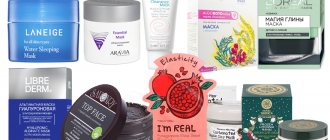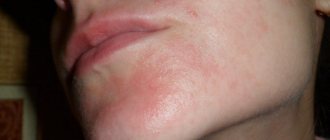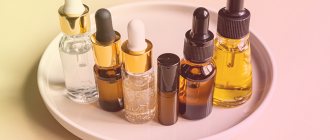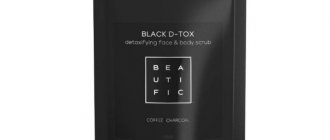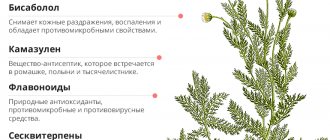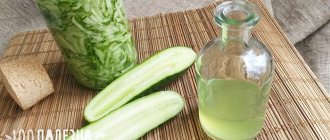Essential oils are oil-like volatile substances that tend to evaporate. They do not have the properties of basic vegetable oils; there is no fat in their composition.
Modern cosmetology knows more than 1500 types of esters. Essential oils are used in cosmetology: for the face, body and hair, for rejuvenation, for acne, unevenness and defects of the skin. In medicine – for a runny nose, headaches, and in the treatment of certain ailments. Aromatherapy has both cosmetic and therapeutic effects.
But, you need to use essential oils for the face, body, hair and, especially, for medicinal purposes wisely, following certain rules.
How to use essential oils for the face: basic rules
- Esters are very concentrated, so they can only be used in diluted form. The base is usually vegetable oils, face creams, as well as ordinary products for masks such as fermented milk products, berry and fruit pulp, clay and water.
Important!
The concentration of esters in the base product must not be exceeded: from 2 to 5% essential oils for the total composition of the base product (this is approximately 5 drops of ether per tablespoon of base).
- Esters do not dissolve in water. Essential oils for the face must first be mixed with emulsifiers (egg yolk, cream or milk, honey and Himalayan salt) and only then dissolved in water. Salt, as an emulsifier, is more suitable for making bath mixtures, and the remaining components are more suitable for making masks.
- A prerequisite before use is an allergy test. If the drug does cause discomfort, itching, redness or burning, then the area on the body should be washed with soap and water, and then lubricated with vegetable base oil.
- There is a certain category - phototoxic esters, that is, those that, when exposed to sunlight, can cause skin pigmentation or even burns. These are all citrus oils (lemon, orange, grapefruit), as well as ginger and bergamot. Mixtures containing such components are best used at night.
- There are only two types of essential oils that can be used directly on the face in their pure form: lavender and tea tree. They are mainly used in the fight against acne. But if the skin is particularly sensitive, it is recommended to dilute them in a 1:1 ratio with the base.
- You should be very careful when using esters on sensitive skin around the eyes, due to the fact that esters are fluid and there is a high probability of damage to the eye mucosa.
What are the advantages:
- Gently cleansing. Hydrophilic oil - upon contact with water it turns into milk. Very gently and delicately cleanses the skin, moisturizes and cares. As a bonus, it strengthens the protective skin barrier;
- Deep nutrition. The composition contains a high content of fatty acids and vitamins, which is very beneficial for the skin;
- Prolongs the youth of the skin, helps fight wrinkles;
- Easily absorbed (it’s hard to believe, but when applied correctly, the skin is soft, smooth and not at all greasy);
- Can replace any other cosmetic product: cream, serum, makeup base, etc.
Essential oils for facial skin
Esters are obtained from various plants, and therefore they have completely different properties. Some moisturize, others tighten, others fight swelling and acne.
For this reason, there is a certain classification of esters for different types of epidermis.
Essential oils for dry skin
This type often lacks moisture, which is why it is prone to flaking and early wrinkles.
- Jasmine, orange and neroli: moisturize and retain moisture in cells.
- Lavender, rose and tea tree, geranium, myrrh: participate in regeneration processes and rejuvenate.
- Fir, frankincense and mimosa: have tonic properties.
- Rosemary, lemon and rose: normalize blood circulation in cells.
- Chamomile, lavender, orange and geranium: soothe, relieve flaking.
Essential oils for oily skin
Problems of the oily type of epidermis: on young skin - these are enlarged pores, acne and comedones, in adulthood - loss of elasticity.
- Lemon, tea tree, lavender - for cleansing.
- Grapefruit, rosemary, juniper, ginger, bergamot, geranium, thyme and lemon balm - for tightening pores, regulating sebum secretion and toning.
- Lemon, lavender - for rejuvenation.
- Ylan-ylang, chamomile, patchouli and tea tree - softening and calming effect.
Essential oils for the face against acne with problematic types of epidermis
Problem skin is uneven, prone to acne, clogged pores. Here it is important to use ethers specifically on the problem area.
- Mint - at the initial stage of pimple maturation.
- Chamomile, patchouli, bergamot, sandalwood, grapefruit, geranium, incense, immortelle, lavender and rosewood - used for inflammation and have disinfectant properties.
- Fennel, lemon balm, tangerine, basil, thyme, pine, mint, bergamot, lemongrass, lemon, mint, cedar - treat acne.
- Lemon, thyme, rosemary, kayaput, grapefruit, myrtle, chamomile and tea tree - pigmentation and post-acne.
- Sage, lavender and geranium are dry acne.
- Cloves - for boils.
- Pine, lemongrass, juniper, cedar, lemon, bergamot, myrtle, mint and eucalyptus - tighten pores.
For normal type of epidermis
The most problem-free type: smooth, smooth skin without inflammation and shine.
- Orange, bergamot, lemon and rose - for cleansing.
- Geranium, rosemary and juniper - for toning.
- Lemon, jasmine, lavender, orange and rose – for rejuvenation.
For combined type
This type is typical for areas with normal or dry and oily skin.
- Bergamot, lavender, rose - for cleansing.
- Geranium, rosemary, lemon and mint - for toning.
- Bergamot, jasmine, ylang-ylang, rose - for calming.
- Orange, lavender, rose and lemon - for rejuvenation.
For aging skin
This type requires care and attention, turgor is reduced and wrinkles are present.
Essential oils for the face against wrinkles and for skin rejuvenation:
- Frankincense and lemon - for brightening.
- Ylang-ylang and nutmeg - for cell regeneration.
- Patchouli, neroli, rose, rosemary and sandalwood - against wrinkles.
- Jasmine and vetiver - for tightening.
Take care of your dress again, and your skin from a young age: be your own cosmetologist
Closer to 30, when you just realize that your mother was right and you need to treat your skin with care - finally cleanse it properly, moisturize it, hide it from the sun and don’t go to bed with makeup on your face - it begins to fade a little. Nothing superfluous: this was the agreement with nature.
But be that as it may, your anti-aging care today determines how you will look in 5-10 years. And when you don’t have time for regular visits to a cosmetologist, especially in the morning, but you want to be beautiful in a matter of minutes, you can start with natural basic masks with aromatic oils for the skin of the face. With regular use, they improve color, fill cells with radiance, and saturate them with moisture and energy.
Natural essential oils provide not only hydration and nutrition, but also perform several other important actions:
- Cleanses skin of any type well. The secret is that fat dissolves in fat. And the main source of contamination of the cheeks, nose, forehead and chin is discharge from the sebaceous glands.
- Accelerate regeneration - help the body eliminate scars, acne marks, scars.
- Protect the hydrolipidic mantle from exposure to ultraviolet radiation, cold, wind, and overheating.
Even the most effective essential oils for the face do not penetrate deep into the epidermis by themselves, but create a thin film on it. For them to penetrate deeply, you need to use them in conjunction with other components, for example, hyaluronic acid, or simply apply to damp skin.
How to use essential oils for the face?
⇔ Masks
⇔ Massage
⇔ Steam baths
Steam your face over a mixture of aromatic oils and water or herbal decoction.
⇔ Washing or rinsing
Proportions: per liter of water – up to 8 drops of ether according to skin type. Can be poured into a bottle with or without a spray bottle. Shake before use. Wash as with regular water or spray as a toner.
⇔ Addition to cosmetics
Recipe for enriching your favorite face cream: for 10 g of base – 5 drops of ether according to your skin type.
⇔ Applications and compresses
- Compresses are a mixture of ethers and water (up to 8 drops of aroma oil per glass of water), which is soaked into cotton cloth or gauze. It is applied to the affected area (eczema, irritation, dermatitis).
Also, a compress is considered to be soaking a bandage or gauze with a mixture of ethers and alcohol (vodka) in the ratio: 5 drops of aroma oil per teaspoon of alcohol-containing product. This procedure is recommended for moisturizing facial skin.
- Applications are a mixture of aromatic oils or pure oil, which is soaked into a piece of cotton wool. This method is suitable for small areas of skin (ulcers, cuts).
⇔ Hydrolates or scented water
Depending on the type of ester, it helps solve the problems of dryness, peeling, and moisturizing the skin. Fragrant water has bactericidal and anti-inflammatory properties, regulates sebum secretion, relieves allergies, and is effective for dermatitis and eczema.
Particularly recommended: pink, lavender, chamomile, mint, sage, rosemary, hyssop and wormwood scented water.
It is quite possible to prepare hydrolate at home - it will not require a lot of time, effort and money.
For oily skin
It is generally accepted that essential oils are used only on dry skin. But they may have different textures. What essential oils are good for oily skin?
For such epidermis, products with a light, quickly absorbed consistency that do not have comedogenic properties are suitable. For example, lemongrass essential oil.
This is a wonderful remedy for oily, porous epidermis. It helps to narrow enlarged pores, normalize the functioning of the sebaceous glands, and restore the water balance of the skin.
In addition, it has a strong antiseptic effect, therefore it prevents the addition of pathogenic microflora and prevents the development of inflammation. At the same time, it increases the elasticity of the skin, making it soft and smooth.
The shade of the product varies from amber to yellow. The aroma is fresh, citrus-like, with notes of sweet grass.
What essential oils are good for facial skin?
Lemon essential oil for face
Lemon oil for the face promotes rejuvenation, smoothes wrinkles, tightens pores, tones dull skin, improves complexion and has brightening properties, fights rosacea. It also has antiseptic, bactericidal and antiviral properties.
- Rejuvenating face mask
Mix half a glass of safflower essential oil with 20 drops of lemon oil. Massage your face along the massage lines in the evening. Can be used on body skin. Wash off in the morning. Course: 1 r/day.
Store the mixture in a dark place in a glass container.
- Brightening mask for age spots
Sea buckthorn oil (2-3 tbsp) + basic remedy (3 drops).
Lavender essential oil for face
Lavender oil: properties for facial skin.
- Skin regeneration.
- Smoothing out creases.
- Increased tone and improved complexion.
- Antimicrobial function.
- Fighting skin problems (eczema, scars, herpes, dermatitis, rosacea).
- Solving the problems of acne and clogged pores with systematic use.
Restrictions: not for teenagers and pregnant women - lavender ether affects hormonal levels.
- Face masks with lavender essential oil
⇔ Express recipe for acne
Mix lavender and tea tree esters (2 drops each). Apply locally to acne.
⇔ Moisturizing
- natural unsweetened yogurt – 3 tsp.
- lavender essential oil – 5 drops.
Mix and gently rub into facial skin. Leave to act for 5 minutes. Rinse off.
⇔ Base (base oil, cream) - 10 ml + 5-7 drops of aroma oil.
The mixture can be used for compresses, lotions, face creams and room aromatization.
Peppermint essential oil for face
Universal oil product for all types of epidermis:
- Ideal for oily types, it solves problems with inflammation, comedones, acne.
- Prevents age-related changes in facial skin (wrinkles, dullness).
- Tightens pores.
- Fights rosacea and pigmentation.
- Cream for oily skin with mint oil.
A composition of aromatic oils of lavender, orange and peppermint (2 drops each) mixed with jojoba oil (30 mg). Apply the cream once a day, preferably in the evening.
- Mask for aging skin
Warm oatmeal with milk (2 tbsp) + mint ether (3 drops)
Rose essential oil for face
Two types of rose oil are suitable for aromatic mixtures: rose damask and rose centifolia, which have the following properties beneficial for facial skin:
- antiseptic;
- antispasmodic;
- antioxidant;
- smoothing.
- Mixture for a steam bath: add lemon and geranium esters (1 drop each) and rose ether (2 drops) to the base oil according to skin type (15 ml).
- Tonic with a lifting effect: basic product (1 drop) + a third of a glass of boiled water.
Shake before use and wipe skin twice a day.
Bergamot oil for face
The ether successfully copes with inflammation, pigmentation, and enlarged pores. Has healing and antiseptic properties.
People with sensitive skin and pregnant women should be careful when using bergamot essential oil for the face. It is a photosensitive oil, which means it is best not to use it during periods of active sun.
Recipes
- Mixture for enriching finished cosmetics: 10 ml of base (cream) + 1-3 drops of oil product.
- Cold compress: base (oil, cream) + 3-5 drops. ether.
Rosemary oil for face
The main use of rosemary essential oil is for oily, problem skin. Perfectly tightens pores, treats rashes, resolves scars and scars.
With caution: people with sensitive skin and pregnant women.
Recipes
- Additive to cosmetic creams and ointments: for 5 g of base – 3 drops of rosemary ether.
- Warm compress for cleansing and healing dry skin: add neroli, rose and rosemary esters (1 drop each) to half a liter of warm (37 ° C) water and mix. Soak gauze folded in several layers with the composition. Apply to face for 15-20 minutes.
Patchouli oil for face
Patchouli essential oil is used for freshness, elasticity, hydration of facial skin, and also has anti-inflammatory and regenerative properties.
It is considered an aroma oil with a “masculine” aroma, ideally combined with grapefruit, bergamot and lavender esters. But you shouldn’t mix it with juniper and cinnamon.
- Face masks with patchouli essential oil
1. Softening mask against peeling
Mix:
- esters: chamomile – 4 drops; Leuzea – 2 drops; patchouli – 2 drops. And
- base oils: avocado or almond (10 ml).
Apply to facial skin, let the mixture act for 20 minutes, blot with a dry cloth.
2. Steam cleansing bath
Dilute the composition of neroli, leuzea and patchouli aromatic oils (1 drop each) into 0.5 liters of boiling water. Keep your face above the steam for 5-15 minutes.
Orange oil for face
There are two types: bitter and sweet orange oil. All pine and citrus oils are considered complementary aromas for it, and the ideal combination is with lavender oil.
Orange essential oil for the face has tonic, vitaminizing, whitening, soothing and antiseptic properties.
Orange oil is phototoxic; it can be used with caution by pregnant women, people with allergies to citrus fruits, epilepsy and hypotensive patients.
Application:
- For aroma massage: massage cream or herbal base + 2-3 drops of orange ether.
- Enrichment of lotions, creams and tonics: 5 drops of product per 15 g of base.
- Compress: 1 drop of oil per glass of liquid.
Eucalyptus oil for face
Eucalyptus essential oil can be successfully used as the main component of care products for aging facial skin.
Eucalyptus is very useful for oily facial skin: it fights inflammation, acne, and infections. It can be used to treat minor frostbite, wounds and burns.
Application:
- To enrich finished skincare products: 3 drops per tablespoon of base.
- For massage of problem skin: base product (15g) + 7-10 drops of eucalyptus ether.
Grapefruit essential oil for face
In cosmetology, grapefruit oil for the face is used to regulate sebum secretion, whiten the skin and tighten pores.
Cinnamon, nutmeg and lavender are considered complementary. Grapefruit also pairs well with fruit bases like peach butter.
Recipes
- Cosmetic ice: honey (1 tsp) + grapefruit ether (5 drops) + mineral water (200 ml). Stir and fill ice-freezing molds with the mixture. Wipe your face daily.
- In its pure form: apply the aroma oil directly to the pimple, being careful not to touch the healthy skin around it, so as not to get burned.
- Whitening mask for oily skin type, narrowing pores: emulsifier (almond oil) + composition of aromatic oils (rose : grapefruit : ginger (3k. : 3k. : 2k.). Course: for cleansed facial skin 2 r/week.
Jasmine oil for face
Jasmine essential oil is suitable for all skin types:
- mixed with rose and lavender it will be beneficial for sensitive skin;
- with bergamot and rosemary it will appeal to combination and oily skin – it will heal inflammation and regulate the secretion of sebum;
- for dry epidermis, it will be an excellent moisturizer and, protecting from the sun, will prevent the appearance of age spots.
Jasmine oil for the face is considered “feminine”. It has rejuvenating and softening properties, makes the skin more elastic and firm, and relieves redness.
Use with caution: hypotensive patients and pregnant women in the first trimester.
- Face masks with jasmine oil
⇔ To rejuvenate aging skin of the face, neck and décolleté (45+):
Cream according to skin type (1 tsp) + jasmine ether (2 drops).
Apply to face, neck and décolleté. After 20 minutes, blot dry with a paper towel.
⇔ For dry skin:
Any basic oil product according to skin type (15 ml) + jasmine ether (1 drop) + sandalwood and rose esters (2 drops each).
Apply to face, blot with a napkin after 20-30 minutes.
Rules of application
Home use of essential oils for the face is an art that needs to be mastered gradually and thoroughly. Those who manage to discover all its secrets will be able to cope with their complexes and cosmetic defects that previously prevented them from living.
- Oils are produced by industrial extraction from plants (flowers, seeds, leaves). The result of the first spin is esters, the end result of all subsequent ones is cosmetic oils, which are also actively used for facial skin care. Under no circumstances should these two liquids be confused, because in ethers the concentration of useful, but very active biological substances is very high. Their dosage is made in drops, and not in teaspoons or tablespoons. Otherwise, you can get a facial burn with essential oil, which will not only ruin your appearance, but will also require long-term treatment and a whole range of restorative cosmetic procedures.
- Do not use pure ethers to avoid burns. Add them to masks and creams.
- If a burn does occur, lubricate the affected area with regular vegetable, olive or any other cosmetic oil.
- Do not mix more than seven essential oils in one product. The best option is a combination of two or three types.
- The same oil can be used for three weeks , after which it must be replaced with another ester. The break should be at least a month.
- Check essential oils for individual intolerance . Place a drop of the chosen elixir on your wrist and monitor your skin's reaction for 12 hours.
- Be careful with esters that have pronounced spicy, peppery tones (lemon, rosemary, nutmeg, eucalyptus) - they have high irritating properties;
- Many aromatic oils are phototoxic, so do not use them before going outside in sunny weather .
- Avoid contact of esters with eyes or any mucous membranes. If this happens, rinse your eyes with drops (Albucid, for example) and boiled water.
- Do not use essential oils if you have epilepsy or are pregnant.
- Those with very fair skin and older ladies should reduce the dosage of essential oils by half.
- If essential oil has a tonic effect, make masks with it in the morning or afternoon. If it calms and relaxes - in the evening.
If facial care with essential oils is carried out strictly in accordance with these rules, no problems should arise: on the contrary, the very first use of these substances will bring benefits and satisfaction with the results.
Don't get lost in the variety of recipes: use those formulations that are suitable specifically for your skin type and can solve exactly your problems.
Useful tips
1. Use only high-quality esters, checking the expiration date. 2. Observe the recommended doses, following the instructions. 3. Do not mix more than seven oils at the same time. The best option is two or three types. 4. Use carefully and sparingly, because this product contains the life of the plant. 5. It is advisable to buy esters from reputable manufacturers to avoid synthetic duplicates.
Regular use of essential oils on the face will not only relieve age-related signs of aging and skin problems, but will also increase vitality and improve mood.
Types of facial oils
Not all oils are created equal.
The modern cosmetics industry produces many products of a combined composition, which, in addition to natural plant components, also contain mineral oils and all sorts of chemical additives (surfactants, emulsifiers, preservatives, etc.).
What are mineral oils
? These are petroleum products. A mixture of liquid hydrocarbons that have been separated from gasoline. They are used in industry for lubrication and as a solvent liquid. For use in cosmetics, they undergo special purification, but still remain carcinogenic.
Mineral oils
create a film on the surface of the skin that “locks” moisture inside. And at first it seems that this softens the covers. But at this time, processes that are not beneficial for the skin occur under the film.
Under it, not only water is retained, but also toxins, carbon dioxide, and waste products that must be removed outside. The film prevents sebum and sweat from freely coming to the surface. Prevents the normal exfoliation of keratinized cells, which will stick together and clog the ducts of the sebaceous glands.
Also, mineral oil slows down the growth and development of cells, dissolves the body’s own sebum and increases dehydration.
Plant oils are a completely different matter.
. They work differently. They do not interfere with the skin’s ability to breathe (saturate with oxygen and excrete everything unnecessary), do not provoke clogging of pores with sebum and “dead” cells, and do not harm the body’s own sebum regulation.
Vegetable oils are friendly to our skin and do not cause harm. We advise you to choose them.
But it is necessary to understand the difference between the two main types of vegetable oils - base
and
ethereal
. The specific use of the product depends on this.
How to moisturize your skin in winter?
Another reason for dry skin in winter is room heating, which mercilessly dries out the skin, causing it to peel and wrinkle. Dehydration of the epidermis threatens us with the appearance of wrinkles and premature aging.
To keep the skin young and beautiful, it is necessary not only to protect it from the cold outside, but also to constantly moisturize it when staying indoors for a long time, where the air is dried by heating devices.
Help: the most useful moisturizers for the skin in winter and summer are natural distillates of medicinal plants, they are called hydrolates. If you need an effective hydrolate to relieve dryness and irritation of the skin, choose from slightly acidic or neutral distillates with an acidity level of pH 5.0 - 7.0. These same products will be the best choice for very sensitive and problematic skin in winter.
Winter hydrolates to moisturize the skin
- myrrh hydrolate (Commiphora Abyssinicia Engler) – pH: 4.8 – 5.0
- geranium hydrolate (Pelargonium Graveolens) – pH: 4.8 – 5.2
- Lavender hydrolate (Lavandula Angustifolia) – pH: 5.8 – 6.1
- Mint hydrolate (Mentha Piperita) – pH: 6.0 – 6.3
- Patchouli hydrolate (Pogostemon Patchouli Pellet) – pH: 6.8 – 7.0
Spray the hydrosol onto the skin of the face, neck and décolleté while at home or at work. Soak a cotton pad with hydrosol and wipe the skin in accessible places and on open areas of the body to refresh and cleanse it.
A variety of beneficial substances contained in hydrolates reliably protect the skin from drying out, soothe irritated skin after chapping and frostbite, help relieve itching and flaking after skin hypothermia, and refresh the complexion.
If you are still thinking about which hydrosol to buy for your facial skin, distilled or mineral water can be a temporary solution to dry skin (both can be purchased inexpensively at a pharmacy and poured into a suitable bottle with a spray).
DO NOT ALLOW the epidermis to dry out and peel - it is at such moments that new wrinkles appear on the face, and in places of redness and peeling of the skin, a capillary network, which is called rosacea, can form.
Beneficial properties of cosmetic oils
Choosing. With what kind of oil to lubricate your face, you should be meticulous about both its origin and the reputation of the manufacturer, and most importantly, take into account that each product has a certain composition and properties that are not suitable for everyone.
To help you get your bearings, I will give a short table with the specialization of the MAIN base oils that are most often used in cosmetology:
- For dry and dehydrated skin , avocado, argan, olive, roses are suitable; for dry skin, the same butters may be suitable - coconut oil, shea butter, not recommended for other skin types.
- Anti-wrinkle oils - roses, wheat germ.
- For oily and inflamed skin , black cumin, St. John's wort, and grape seed oil are suitable.
- Universal oils that are suitable for all skin types - apricot kernel oil, jojoba oil, wheat germ oil, sea buckthorn oil.
- The best anti-aging facial oils against wrinkles are rose and wheat germ.
- for facial massage , because the main thing that is required of them is improved hand gliding, and almost any product from this category is capable of this. Even, God forgive me, mineral oil can perform this function.
